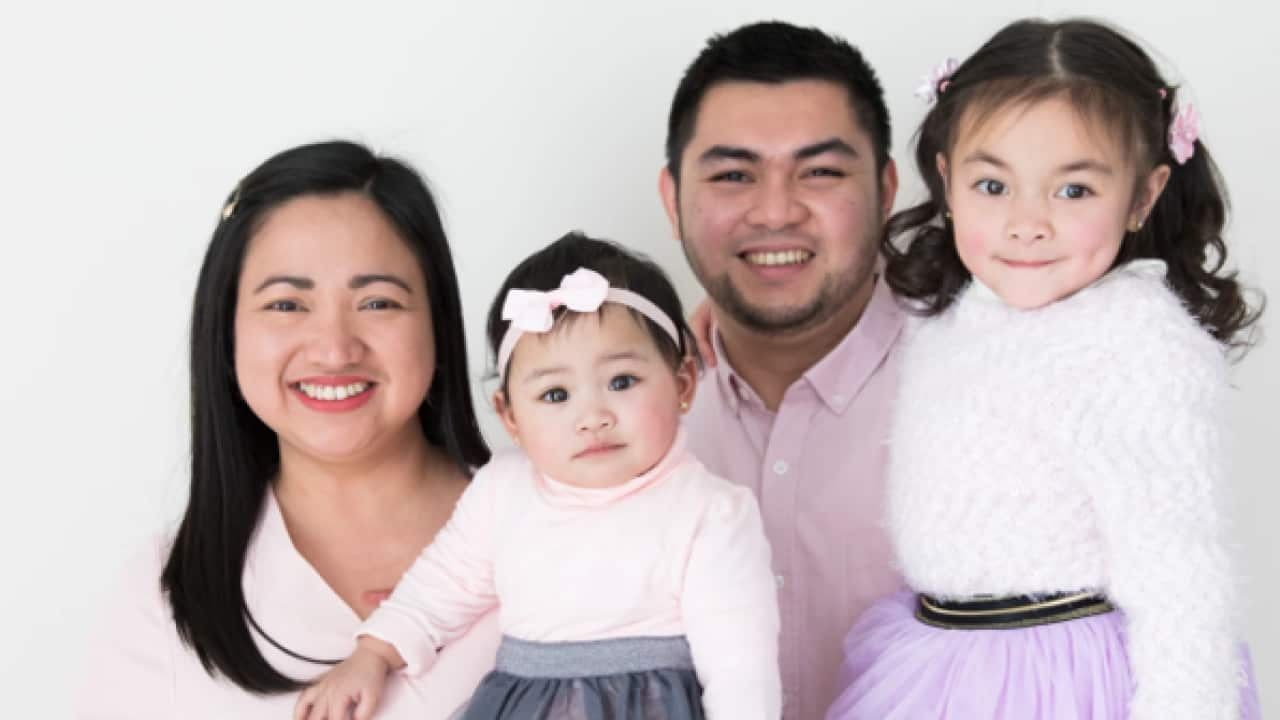Highlights
- Erica’s family migrated to Darwin in 2015 where she got pregnant with her second child.
- While pregnant, the baby developed rare conditions such as velamentous cord insertion and vasa previa while Erica had preeclampsia.
- Her second daughter, Nissi was born prematurely and stayed in NICU for 68 days.
Growing up, Cerisse Erica Gomez always knew that she wanted to be a mother. Her dream was simple - get married, raise a family, and take good care of her children like there is no other noble vocation on Earth.
Her life is dedicated to the welfare of her children. They are her happiness and only priority. However, pregnancy has not always been easy for Erica.
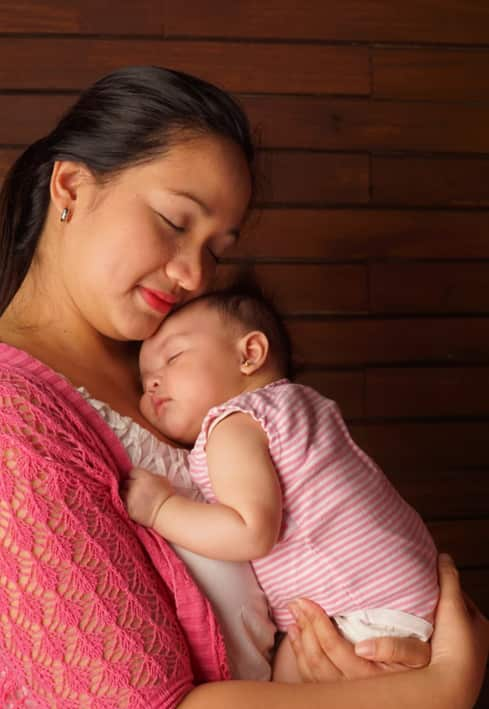
“Before giving birth to our eldest Nikki in 2014, I already had a miscarriage. So, when Nikki was born, my husband and I decided that I stay at home to take care of her until we move to Australia in November 2015 for the future of our kids”, she shared.
In Darwin, Erica, her husband Don, and Nikki, their eldest daughter, who was just 11 months old at that time, started a new life.
Like many migrants, starting up was not easy for the Gomez family. With meagre savings, they built a life for them at the top end.
“It was hard to move to a new country. We lived in a caravan parked at the back of a compound for almost a year.”
Because Nikki was just four at that time, Erica needed to stay at home to take care of her while Don worked.
As their expenses increased, Erica decided to help Don and got employed herself. She was extremely reluctant to leave Nikki under the care of a neighbour, but she had no choice. Erica said that it was very tough for her.

When Don’s employment became more stable, Erica went back to being a full-time mum again. And in no time - the household of three was about to become four.
This is when Erica’s story becomes an account of a mother’s unconditional and selfless love for her children.
Delicate second pregnancy
Don and Erica were extremely excited when they found out in February 2018 that they were pregnant with their second child. Despite their challenging circumstance in Darwin, the soon-to-be parents of two were delighted to welcome the pregnancy.

However, during the first trimester of her pregnancy - while at work - Erica lost consciousness and had excessive blood loss.
They thought that their baby was gone as the episode was akin to a miscarriage. But the doctor confirmed that the baby was still there and that utmost care should be taken because the pregnancy was not going to be an easy one.
“Due to that heavy bleeding incident, Don and I thought that we’ve lost our second child. But with God’s grace, the baby was safe. The heartbeat shown in the ultrasound confirmed that she’s still alive. We were overjoyed.”
As Erica went on with her pregnancy, their friends and relatives noticed that Erica’s baby bump was smaller compared to when she was pregnant the first time. Both knew that it was a forewarning that something was not right.
When they went for one of Erica’s regular check-ups during her final trimester, the doctor confirmed that the baby had a rare condition called velamentous cord insertion and vasa previa.
It is the condition where the umbilical cord is uncoiled and inserts into the fetal membranes rather than directly to the placenta.
On top of that, in another routine check weeks later, they found out that Erica has another condition called preeclampsia. It is a serious condition of pregnancy, commonly characterised by high blood pressure and severe swelling.
“Every time I go to the hospital for my regular check-up, the doctor would always ask me to be admitted overnight due to my high blood pressure. I was already told that my condition was exceedingly rare and that the hospital’s first case like mine – the patient didn’t survive.”
They were told that there is no medication or procedure that can remedy the condition except after the delivery of the baby.
This discovery led them to an assumption that their second child will be delivered earlier than supposed to and Erica must find alternative ways to manage her hypertension since regular medications have an adverse effect on the baby.
Erica was very distressed about her situation. With the magnitude of findings, she felt overwhelmed but wanted the pregnancy to continue with high hopes of both surviving.
The day that will change Erica’s life forever
On August 22, 2018, Erica felt excruciating pain in her abdomen area while preparing to go to work that evening.
Luckily, Don was already home from work who brought her immediately to the emergency department of the Royal Darwin Hospital. Since no one will look after their daughter at short notice, they took Nikki with them.
“I know that I wasn’t in labour yet, but my abdomen was very painful, and I was sweating profusely. Don also noticed that I was turning pale very quickly.”
Upon reaching the hospital, the midwife who attended her recommended that she gets admitted straight away. A doctor then attached an apparatus to monitor the baby’s heartbeat.
Erica’s pain didn't go away. The pain points were slowly becoming numb, which slowly reaching her neck. Pain relievers were not working anymore, and the doctors were unsure as to what exactly was happening to her.
The baby’s heartbeat also dropped at that moment - that’s when a call was made to deliver the baby.
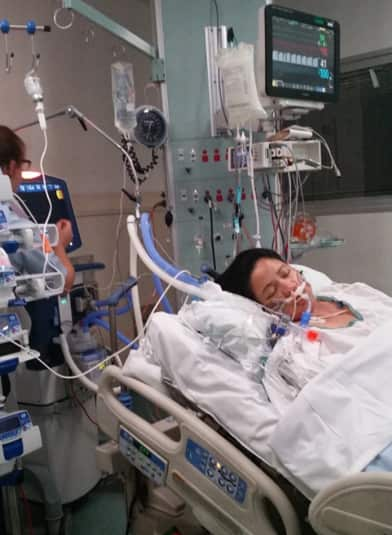
As a mother, Erica didn’t envision giving birth to her second daughter under these challenging conditions.
At 11:20pm that night, Erica gave birth to Nissi who was premature and had to be incubated and monitored closely.
She was born in the 28th week of gestation and only weighed 876 grams. It was a relief that the baby was delivered safely, but the doctors and nurses’ job was not done yet.
Don was advised to spend time at the Neonatal Intensive Care Unit (NICU) while Erica was still in the operating theatre. After a couple of hours, Erica was admitted to the ICU.
She lost a significant amount of blood – around 10 bags - during the delivery. It was later explained to Don that since it was unclear where the blood was coming from, the doctors called an executive decision to cut Erica’s tummy further up - below the breast- to stop the bleeding. They discovered that Erica’s right liver was ruptured.
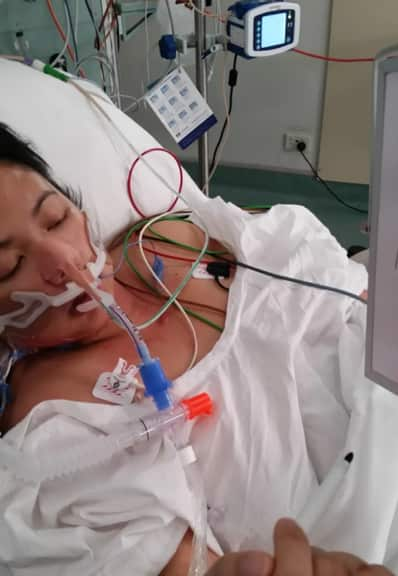
Erica’s condition was extremely crucial. If not for the lowering heartbeat of the baby, the doctors would have not performed a Caesarean delivery.
If not for the Caesarean delivery, they would have not known about the internal bleeding. And if not for the internal bleeding, they would have not known that Erica’s right lung had been ruptured.
The doctor said that if Erica were left unattended, she would have died as it could have been a stroke. She developed a life-threatening condition called Haemolysis, Elevated Liver enzymes, Low Platelet count (HELLP) syndrome, which is associated with her preeclampsia and only occurs in 5-8 per cent of all pregnancies. Due to its rarity, no standard treatment was applied.
Erica spent the next 24 hours in an induced comatose with her tummy left open for two days so that the doctors can monitor the status of her right liver.
A team of doctors brought her again to the operating theatre where they found out that her right liver miraculously stopped bleeding and was starting to recuperate. It was only then that the doctors decided to close Erica’s stomach.
“When I gained back my consciousness in the ICU, I was still feeling disoriented. I only saw unclear visions of Don, Nikki, the doctors, and friends who visited me. Since I can’t also talk properly, Don asked me to write on a small whiteboard if I’m ok and to thank everyone who prayed for my speedy recovery.”
After being comatose for four days, she was brought out to a regular room where she rested for a couple of days.
She was fed through a tube and was instructed to press a button on her bed if she felt any more severe pain. Eventually, she was discharged from the hospital after two weeks.
Despite the pain, Erica’s main concern was her two daughters: Nikki who was at home with Don and Nissi who was incubated in the NICU. Although not yet fully recovered, Erica was constantly asking the doctors to discharge her so that she can be at home with Nikki.
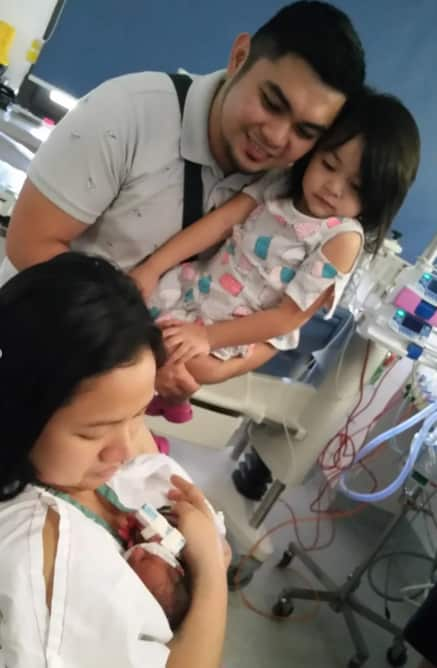
Nissi, on the other hand, stayed back in the hospital. Erica visited her every day to ensure that her second child’s condition is improving, too. They had to wait for Nissi to weigh 2.4 kgs before they were able to take her home.
“Every time I visited the hospital, I had to breast pump so that we can feed Nissi through a syringe. The doctors and the nurses were very warm and accommodating. They made everything easy for me during my visits.”
Nissi was brought home after staying in the NICU for 68 days.
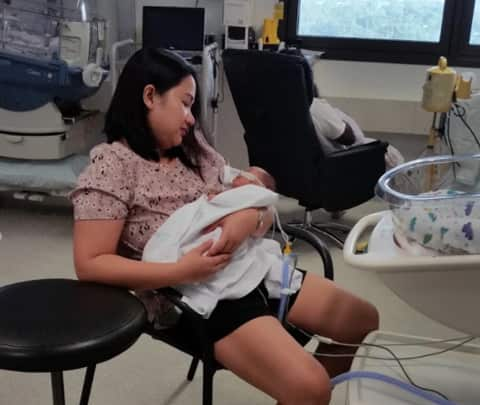
The greatest joy of Erica’s life
Erica still can’t fathom and explain how she survived everything that she had been through. With Don by her side and with prayers, she miraculously recovered without maintaining any medications.
“My family is the greatest joy of my life. And my children are the greatest gift from God, who I will nurture with utmost love and selflessness," Erica shared.
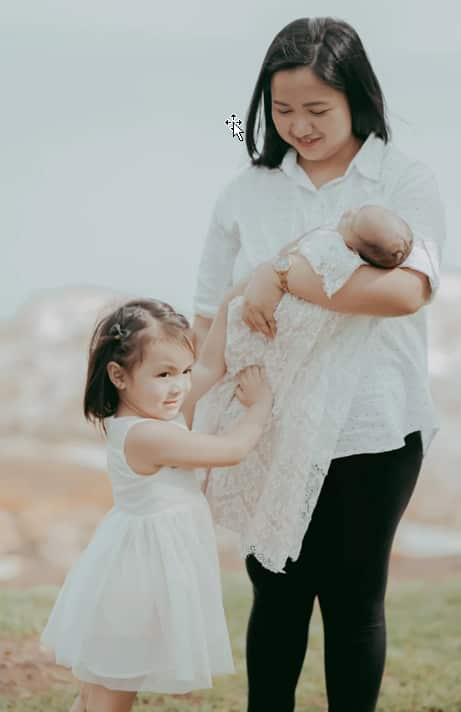
She believes that the true meaning of motherhood is taking care of the children whom God entrusted to them.
It is a vocation that she willingly accepted and lives out every day. Although most of the time it’s not easy with competing responsibilities, Erica believes that being a mother is the greatest role she could ever play in this lifetime.
The Gomez family now happily lives in Canberra with both Dominique and Denise perfectly healthy.
ALSO READ
